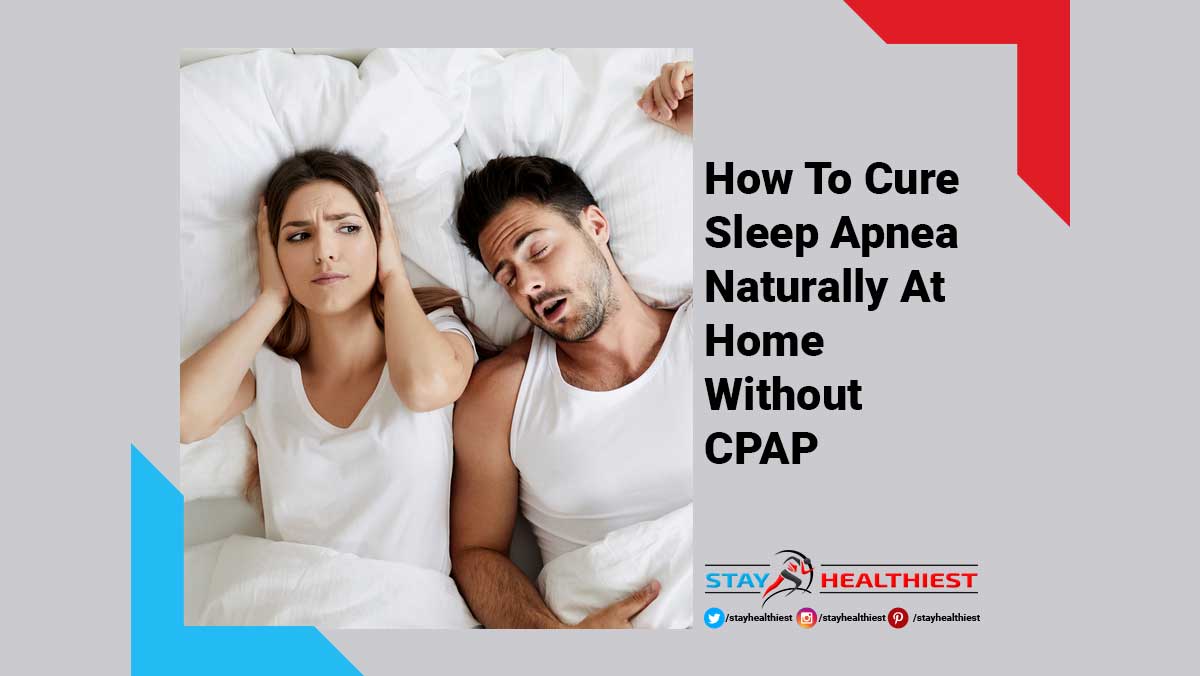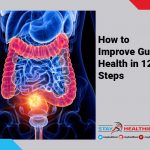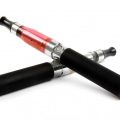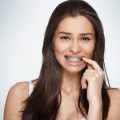Do you wish to get rid of sleep apnea machines? Does CPAP disturb your sleep more than sleep apnea itself? Don’t you want to know how to cure sleep apnea naturally? Read on…
Sleep apnea is a condition where your breathing is interrupted at night for short periods. As a result, they wake up with a gasp.
[su_highlight background=”#fed388″]On the contrary, a lot of people don’t really wake up and their sleep cycle appears to be normal.[/su_highlight]
Sleep apnea is associated with loud snoring, especially in men. As per research, men are more likely to develop sleep apnea symptoms. As for women, they might develop sleep apnea due to obesity, after menopause, or excessive drinking or smoking.
Patients with sleep disturbances have to face daytime drowsiness, stress, low work performance, lack of focus, and stress.
Symptoms of Sleep Apnea
Snoring differs from sleep apnea due to the symptoms. Sleep apnea is associated with:
- Lethargy
- Morning headaches
- Disturbed sleep cycles
- Lack of focus
- Mood swings and irritability
- Dry throat upon awakening
- Waking up with a gasp
- High blood pressure
- Anxiety and stress
Health Hazards of Sleep Apnea
Sleep apnea, if ignored, can cause a number of health issues beginning from drowsiness to depression. Untreated sleep apnea can lead to:
- Poor immune functionality
- Dementia
- Cardiovascular diseases
- Stress and Depression
- High Blood Pressure
How to Treat Sleep Apnea?
Sleep apnea is treated medically by using breathing devices—the CPAP machines. Sleep apnea medication includes drugs such as Provigil and Nuvigil but there are various side effects of it. Surgery is another permanent solution for people who have sleep apnea due to tonsils, etc.
Apart from that, cures for sleep apnea include a few lifestyle changes that can uplift the quality of your life.
Let’s dive into natural ways of how to cure sleep apnea. No more CPAP machines, no more disturbance, and discomfort!
How to Cure Sleep Apnea Naturally?

Here are lifestyle changes that you can adopt for treating sleep apnea.
-
Maintain A Schedule
No matter what sleep problem is catered to, you MUST follow a sleep schedule. Set a time to sleep, and set it for up to 8 hours to prevent daytime fatigue. Even if you awake during the night, you will get proper sleep of at least 7 hours. It will reduce the excessive production of stress hormones and relax your body properly.
To follow the schedule, ensure that you turn off the electrical appliances 30 minutes prior to sleeping. Dim out the lights in the room and if you like, turn on some soft sleep-inducing music.
-
Avoid Alcohol, Caffeine, Sedatives, and Smoking:
A healthy diet equals healthier sleep. Stop having alcohol or other sedatives that can interfere with your sleep pattern.
All these relaxants can even relax the throat muscles that’ll lead to breathing difficulty. It can lead to louder snoring and irritability during the day.
As for smoking, it can cause inflammation as well as fluid retention in the trachea (air tube). Smokers usually have three times higher chances to have obstructive sleep apnea than non-smokers.
Well, that’s another reason to quit smoking. If you wish to drink, drink it during daytime or at least four hours before sleeping.
Similarly, caffeine alerts your mind. To follow your sleep schedule, avoid coffee in the evenings.
-
Treat Nasal Congestions, Heartburn, and Coughs
Nasal congestion, heartburn, and chronic coughs can worsen the symptoms of obstructive sleep apnea.
Heartburn or acid reflux causes the acid to make its way upwards towards your throat, which causes swelling and irritation. Coughs and throat infections can add to the intensity of sleep apnea by causing blockade during sleep.
Ensure to have a healthy diet, less exposure to allergies, and to keep your head on a raised sleep apnea pillow for preventing reflux or congestion.
-
Lose Excessive Weight
Whenever you would look up for solutions on how to cure sleep apnea, the first would be to lose weight.
For sleep apnea, you would have to give up on junk food and eat healthily. Here’s another reason to lose weight: sleep apnea. What happens is that excess weight deposits around the airways that can obstruct breathing.
Furthermore, sleep apnea and obesity contribute to similar health issues such as high blood pressure, and heart attack. As per studies, sleep apnea affects adversely various organs and systems inclusive of insulin resistance, visceral fat deposition, systemic inflammation, cardiovascular disease, and dyslipidemia.
[su_highlight background=”#fed388″]A major lifestyle change that’s essential for treating sleep apnea is weight-loss. Get rid of excess weight, enjoy a healthy life and a healthy sleep.[/su_highlight]
-
Best Sleeping Position for Sleep Apnea
A great alternative to the CPAP machine is maintaining a proper sleep position for sleep apnea. Elevate your head and try to sleep on your side to prevent the tongue from falling back and blocking the airways.
Another less feasible option of sleeping is on your stomach, but that’s no comfortable for everyone.
-
Antioxidant Supplements
Medication for sleep apnea includes antioxidant supplements. It’s a natural remedy to cope up for the oxidative stress associated with sleep apnea. To counter that, you need to increase antioxidants in the blood such as vitamin E and carotenoids.
Untreated oxidative stress leads to endothelial dysfunction that’s prevents the blood vessels to properly relax and contract. Ultimately, it leads to atherosclerosis, strokes, and heart attack.
-
Use a Snore Guard or Sleep Devices Temporarily
For sleep apnea prevention, another solution is to use a snore guard that you will insert in your mouth. Snore guards are boiled to adjust into your mouth and it helps by bringing the lower jaw forward to prevent obstruction in airways.
[su_highlight background=”#fed388″]Other snoring aid devices are mandibular advancement device that is permanently inserted in the mouth.[/su_highlight]
-
Use Humidifiers
Using humidifiers is a popular and effective CPAP alternative. People have reported decreased congestion, snoring, coughs, and improved breathing. Moreover, a humidifier helps the sinuses to drain and allow fresh air to move through the trachea.
Besides that, you can rub essential oils on your chest that induce sleep. Eucalyptus essential oil used in Vicks VapoRub is great to help your sleep.
You can find out what essential oils help you sleep better here.
































No Comments
Leave a comment Cancel